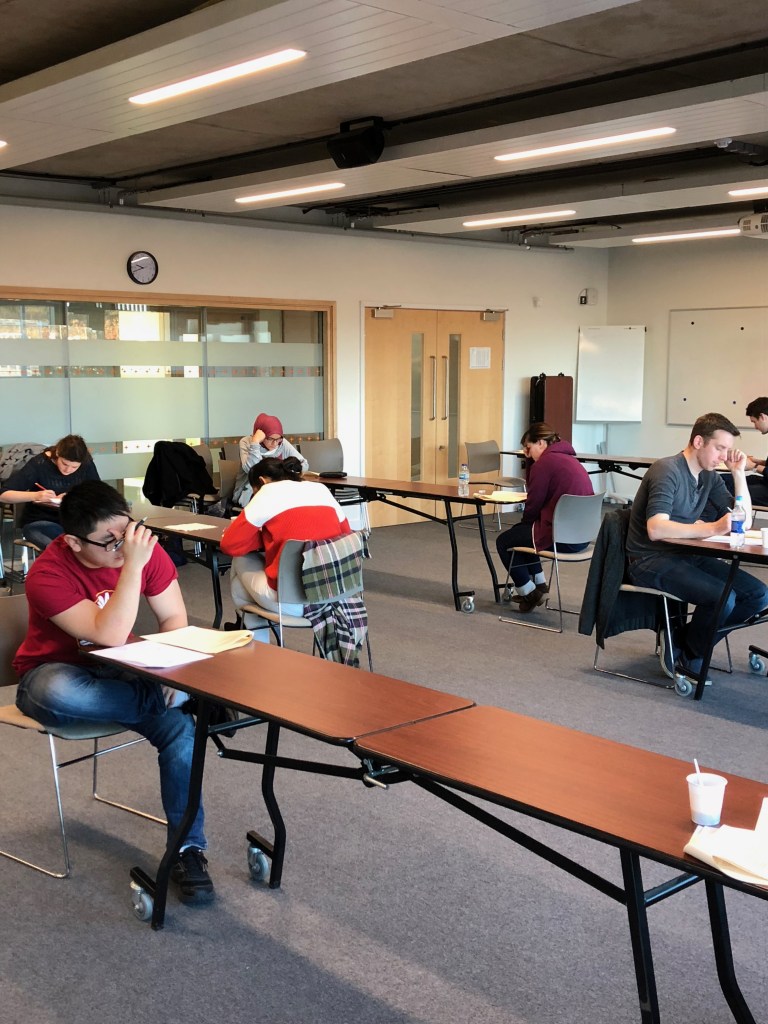MRCS Part A

Miss Amal Boulbadaoui, Core Surgical Trainee, EoE - April 2025
MRCS A
MRCS A is a 2-part exam for Membership of the Royal College of Surgeons. It is a 5 hour exam made of 2 MCQ papers in a single best answer format. They cover basic surgical sciences including anatomy, pathology, radiology, physiology and principles of surgery.
Paper 1: applied basic sciences (ABS)- 3 hours total.
Paper 2: principles of surgery in general (PoSG)- 2 hours total.
As of 2025, it is delivered via computer-based testing centres in partnership with Pearson Vue.
It is a requirement for surgical trainees to have the full MRCS (Parts A and B) before progressing into ST3.
It can be booked through any of the recognised Royal Colleges (intercollegiate).
6 attempts are allowed for part A if you’re a trainee (individual circumstances/additional attempts can be discussed with the Royal College)- anecdotally most people pass with 1-3 attempts (a pass is a pass!)
Pass rate: ~30-40% of candidates pass on average per sitting
Pass mark: very variable: ~65-77% (must pass both parts of exam)
The standard for the MRCS Part A paper is set using the Angoff procedure. A number of ‘marker’ questions - 20% of the total questions - taken from a previous examination are included in each Part A paper and are used to maintain a standard.
There is no ‘best time’ to sit the MRCS A, but the earlier on in your training that you sit it the better- this means that if multiple resits are required, you can still meet the CST training requirements. It also means you can sit the part B in good time and allow more time to focus on ST3 applications. It is imperative you give yourself at least 4-5 months’ revision.
The syllabus is divided into 10 modules:
- Module 1: basic science knowledge relevant to surgical practice
- Module 2: common surgical conditions
- Module 3: basic surgical skills
- Module 4: the assessment and management of the surgical patient
- Module 5: perioperative care of the surgical patient
- Module 6: assessment and early treatment of the patient with trauma
- Module 7: surgical care of the paediatric patient
- Module 8: management of the dying patient
- Module 9: organ and tissue transplantation
- Module 10: professional behaviour and leadership skills
Question banks for MRCS A:
Question banks are crucial for the part A exam. The following resources are useful:
- eMRCS- do the bank 2-3x and aim for 80-90% score to increase likelihood of a pass
- Pastest
- BMJ Onexamination
- Medibuddy MRCS A question bank
- Teachmesurgery question bank
Books/websites for MRCS A:
Anecdotally speaking, most candidates tend to prefer EMQ and SBA question banks. Books can be useful to read around topics (bitesize reading only- do not memorise textbooks), but books tend to be more useful for part B. Some books recommended include:
- Clinical Anatomy: Applied Anatomy for Students and Junior Doctors (Ellis, Mahadevan)
- Snell’s clinical anatomy textbooks
- eMRCS textbook
- Teach me anatomy
- Teach me surgery
Courses for MRCS A
- The EoE MRCS A course is excellent- and you should book a space quickly!
- Doctors’ academy MRCS A
MRCS B
Part B consists of an objective structured clinical exam (OSCE). The OSCE consists of 17 examined stations each of 9 minutes duration.
The exam tests the following topics:
- anatomy and surgical pathology
- applied surgical science and critical care
These topics will be tested in a VIVA format (e.g. back and forth questions on a topic, anatomy diagram etc.) as well as examination stations and technical skills stations (suturing, excision of naevus, chest drain insertion etc.)
Depending on the demands of your CT1 rotations (assuming the exam has not been taken as an FY2), candidates should determine if part B is taken in their CT1 or CT2 year. Most would ideally advocate 5-6 months’ preparation and at least one revision course. The part B should involve textbook reading and group practice. It is virtually impossible to revise for MRCS B independently, as you will need someone to critique you and practice explaining your answers out loud.
Resources for part B:
- Get through MRCS anatomy book- excellent basis for anatomy stations
- Teach me anatomy
- Teach me surgery
- Rafferty book
- Acland's Video Atlas of Human Anatomy: search on YouTube
- Pass the MRCS
- Doctor Exam
- RCSEng anatomy and pathology museum e-resource- available if an affiliate member of RCS: https://www.rcseng.ac.uk/museums-and-archives/anatomy-and-pathology-museum/anatomy-and-pathology-museum-e-resource/
Courses for MRCS B:
- EoE MRCS B course is a very realistic and free course for EoE trainees- book slots early
- RCSEng Hunterian Museum drop in session: https://www.rcseng.ac.uk/museums-and-archives/anatomy-and-pathology-museum/mrcs-revision-sessions/
- King’s College London revision course: https://estore.kcl.ac.uk/product-catalogue/academic-faculties/faculty-of-life-sciences-medicine/cardiovascular-division/st-thomas-mrcs-revision-courses-2025
- ACPGBI MRCS B course